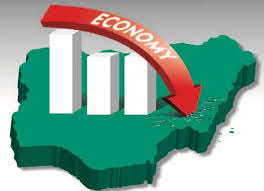The Central Bank of Nigeria (CBN) recently adopted the free float exchange rate mechanism to meet the forex target of President Bola Ahmed Tinubu to achieve a single forex system in the country. AMAkA IFEAKANDU in this report looks at the benefits and implications of the policy on the financial system and the Nigerian economy in general.
Tinubu’s plan
The Central Bank of Nigeria (CBN) recently adopted a free float foreign exchange management regime in line with President Bola Ahmed Tinubu’s planned target to carry out monetary policy reforms to restore a single exchange rate in the country.
The decision to float the Naira became effective with the collapsing of the existing market segments into the Investors and Exporters window, the reintroduction of the ‘willing buyer, willing seller” model, 2-way based quotes with a bid-ask spread of N1, and an order book to ensure transparency of orders and seamless trade executions.
More investment inflow
Although the decision to float the local naira has been met with mixed reactions, it is widely believed that this step was a necessity in order to improve the country’s economy.
The strong argument for this new development still holds that the free market will be able to determine the naira’s true value, leading to more investment inflow and economic growth.
Some argued that there may be, in the short term, Forex market instability emanating from the inability of the free market to determine the naira’s true value.
In 2016, the CBN introduced a managed floating exchange rate regime, which replaced the previous fixed exchange rate regime. The managed floating regime allows the naira fluctuate freely within a band set by the CBN. This policy was implemented in an effort to improve the transparency and efficiency of the foreign exchange market and make the
naira more competitive.
Racketeering and speculative rip-offs
However, the policy was marred by racketeering, speculative rip-offs, and incoherent Forex policies.
Available data from experts showed that the value of the naira depreciated at the official rate by 233.1 per cent between January 4, 2016 and June 14, 2023. This means that Naira traded between N199.37 per dollar and
N664.04 to a dollar, with a loss of N464.67 in value under 7 years.
Before now Nigeria’s foreign exchange market has operated a multi-tiered system that includes the official market,
the parallel market, and the Bureaux de Change (BDC) market segments. The central bank has been heavily involved in
the regulation of these markets as well as managing the value of the naira across all markets to keep the naira at a fixed
rate. But the current regime does not require the CBN interference in terms of supplying dollar to the forex market.
Though it is too early to ascertain the long term impact of the free float exchange, there is a clear indication that it is a significant policy shift with major economic impact.
CBN forex circular
The CBN in its current forex circular scrapped multiple exchange rate windows and collapsed them into the Investors and Exporters (I&E) window” to meet single exchange rate target of the new administration.
According to the circular to all authorized dealers and the general public, titled: “Operational Changes to the foreign exchange market”,signed by Dr Sere-Ejembi said the circular stated that the “Willing Buyer, Willing Seller” model at the I&E Window has been reintroduced, adding; “Operations in this window shall be guided by the extant circular on the establishment of the window, dated 21 April 2017 and referenced FMD/DIR/CIR/GEN/08/007.
It said “Applications for medicals, school fees, BTA/PTA, and SMEs would continue to be processed through Deposit Money Banks (DMBs)”.
“All eligible transactions are permitted to access foreign exchange at this window. The operational rate for all government-related transactions shall be the weighted average rate of the preceding day’s executed transactions at the I&E window, calculated to two (2) decimal places.”
Similarly, the apex bank’s circular noted the introduction of the prescription of trading limits on oversold FX positions with permission to hedge short positions with over-the-counter (OTC) futures. Limits on overbought positions shall be zero, even as it also re-introduced order-based two-way quotes, with a bid-ask spread of N1. All transactions shall be cleared by a Central Counter Party (CCP).
Operators’ view
Operators in the nation financial industry who commented on the recent development see free float foreign exchange market as a step that will have both positive and negative impact on the Nigeria economy.
They have general opinion that such policy might lead to increase in inflation, reduce the purchasing power of average workers as well as increase the price of petroleum products in the long long run.
Commenting on the new forex policy, the Chief Research Officer Investdata Consulting Limited, Mr Ambrose Ormodion said the free float foreign exchange system adopted by the CBN is a welcome development that many market players and economists have been yearning for a very long long time.
He said the new policy allows the exchange market to determine by demand and supply.
He said that the new exchange rate regime in a short run will operate as doubled edged sword, adding that in the early stage of implementation, the economy will be heated up especially the manufacturing sector and some other sectors will be affected but it will be a plus to investment angle of the economy.
He explained that financial market has both short and long term investment period, adding that the economy funds the the market while financial market on the other hand support the economy.
Financial market might be more buoyant than the economy
Omordion stated that with this new policy the financial market might be more buoyant than the economy and with time the financial market will start providing money to drive the economy.
Insisting that the policy is a two way -edged sword, he said that this process would slow down the activities in the manufacturing sector, because the sector will be grappling with difficulty to access forex exchange.
He said that before now the manufacturing sector depends mainly on the black market for the purchase of dollar to buy raw materials and this has impacted on their cost of production.
He explained that with the floating exchange rate, all the companies will be having access to the foreign exchange at high price and on the short run, noting that since we already have high inflation that weakens the purchasing power of Nigerian, the new forex mechanism is likely to worsen the situation..
He encouraged manufacturers to export more goods for the country to earn more dollars, but said in the short run the policy will lead the inflation.
Collaborating with Ormodion’s view
Managing Director, APT Securities and Fund Ltd, Malam Garba Kurfi said floating of exchanged rate is a step in the right direction.
He said that such development will bring Foreign Investors into the Country as they are free to exchange their funds based on the market determined rate.
He said the implications of single exchange rate is that it has the tendency to increase Foreign Exchange loan in Naira terms by more than 30 per cent meaning that our total loans will shift from N70 trillion will increase to about N90 trillions.
The Former Managing Director, H..J. Trust and Investment, Mr Harrison Owoh said the recent move by the CBN to adopt floating exchange rate as directed by the Federal Government will have so many implications on the economy.
He said free float exchange rate is determined by market forces meaning that the government and CBN has no interference in the supply and demand of forex.
He said although this method may be good in a developed economy where all structures are already in place but it is bad for developing economy like Nigeria
He said that every country has the sovereign right to protect her own currency by implied consent or by conduct but Nigeria has no mechanism as such in its monetary policy operations.
Owoh said Nigeria as an import-dependent economy, the.flotating of its currency means there will be high inflation and the cost of goods and services including cost of doing business in Nigeria will increase, a disincentive to doing business in Nigeria, leading to devaluation of our currency
He said in the Nigeria exchange rate market we have CBN rates ,bank rate, BDC,rate and the black market rate, the plan to harmonise those multiple rates to a single rate is a welcome idea but this will not yield the expected result if the right mechanism is not put in place.
According to a Management Consultant, Femi Olabiyi, It was good that the central bank has abolished multiple forex markets but encouraged federal government to make hedging.
“Let the government make a hedging mechanism such that the single market would not float outside the +/- 20 percent range in any business year. Currency stability is better than the wild fluctuations of the market.




